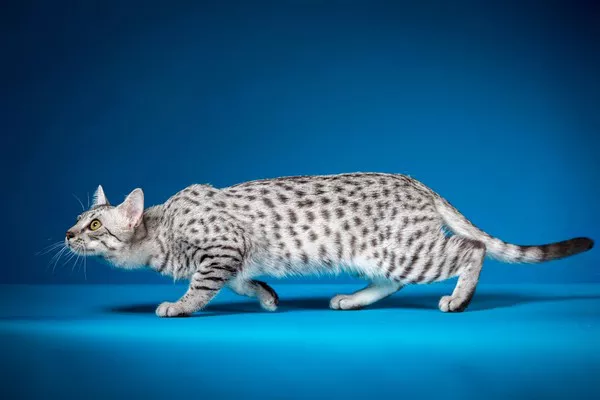Cats are known for their graceful agility and charming independence. As responsible pet owners, we want to ensure our feline companions lead healthy and fulfilling lives. Part of this responsibility includes providing the right nutrition to support their growth and well-being. Calcium is a crucial mineral for cats, playing a vital role in various bodily functions. But does your cat need calcium supplements, and how can you ensure they’re getting enough of this essential mineral through their diet? In this guide, we’ll explore the importance of calcium for cats, signs of deficiency, and whether supplements are necessary.
The Role of Calcium in Cat Health
Calcium is not only vital for humans but also plays a fundamental role in maintaining your cat’s health. Here are some key functions of calcium in feline physiology:
Bone Health: Calcium is the primary building block of your cat’s bones and teeth. It ensures their skeletal structure remains strong and resilient.
Muscle Function: Calcium is involved in muscle contraction and relaxation, enabling your cat to move gracefully and perform daily activities.
Nerve Function: Nerve cells rely on calcium to transmit signals effectively. Adequate calcium levels are crucial for a well-functioning nervous system.
Blood Clotting: Calcium is essential for the coagulation of blood, preventing excessive bleeding in case of injury.
Enzyme Activation: Many enzymes in your cat’s body require calcium as a cofactor to catalyze various biochemical reactions.
Does Your Cat Need Calcium Supplements?
Most healthy cats obtain the necessary calcium from their regular diet, primarily through high-quality commercial cat food. Good-quality cat food is formulated to meet the nutritional needs of cats, including calcium requirements. However, there are situations in which your cat may benefit from calcium supplements:
1. Pregnancy and Lactation: Pregnant and nursing cats have increased calcium requirements to support the growth of kittens. Consult your veterinarian for appropriate supplements during this time.
2. Growing Kittens: Kittens need ample calcium for proper bone development. Ensure they are eating a balanced diet formulated for kittens.
3. Senior Cats: Older cats may have reduced calcium absorption efficiency, and supplements can help maintain their bone health.
4. Homemade Diets: If you prepare homemade cat food, it’s crucial to consult your vet or a veterinary nutritionist to ensure the diet meets all nutritional requirements, including calcium.
5. Medical Conditions: Certain medical conditions, such as hypocalcemia (low blood calcium levels), may require calcium supplementation under veterinary guidance.
Signs of Calcium Deficiency in Cats
Recognizing the signs of calcium deficiency in your cat is essential for their well-being. If you observe any of the following symptoms, consult your veterinarian promptly:
Muscle Tremors or Twitching: Cats with low calcium levels may experience muscle tremors or involuntary twitching.
Weakness or Lethargy: Reduced muscle function due to calcium deficiency can lead to weakness or lethargy in your cat.
Difficulty Walking: Calcium is vital for maintaining strong bones. Cats with calcium deficiency may show signs of difficulty walking or limping.
Seizures: In severe cases, low calcium levels can trigger seizures in cats.
Loss of Appetite: A decrease in appetite can be a sign of underlying health issues, including calcium deficiency.
Risks of Excessive Calcium
While calcium is essential, excessive calcium intake can be harmful to your cat. Hypercalcemia, or high blood calcium levels, can lead to various health problems. These may include kidney stones, urinary issues, and interference with the absorption of other essential minerals. Always consult your veterinarian before adding calcium supplements to your cat’s diet to prevent overconsumption.
How to Ensure Adequate Calcium Intake
Providing a balanced and nutritious diet is the best way to ensure your cat receives the right amount of calcium. Here are some tips for maintaining your cat’s calcium intake:
High-Quality Commercial Cat Food: Choose reputable cat food brands that meet the Association of American Feed Control Officials (AAFCO) standards. These foods are formulated to provide the necessary nutrients, including calcium.
Life Stage-Specific Food: Feed your cat according to their life stage. Kittens, adults, and seniors have different nutritional requirements. Select food appropriate for your cat’s age.
Consult Your Vet: If you have concerns about your cat’s diet or potential calcium deficiency, consult your veterinarian. They can recommend appropriate dietary adjustments or supplements.
Homemade Diets: If you prepare homemade cat food, work with a veterinary nutritionist to formulate a balanced diet that meets all nutritional requirements.
Monitor Your Cat: Pay attention to your cat’s behavior and overall health. If you notice any signs of calcium deficiency, seek veterinary advice promptly.
In Conclusion
Calcium is a vital mineral for maintaining your cat’s health and well-being. While most cats obtain sufficient calcium from their regular diet, there are specific situations where supplements may be necessary. However, it’s crucial to consult your veterinarian before adding any supplements to your cat’s diet to ensure they receive the right amount without risking excessive intake. Regular veterinary check-ups and a balanced diet tailored to your cat’s life stage will help ensure they thrive and enjoy a happy, healthy life by your side.


























